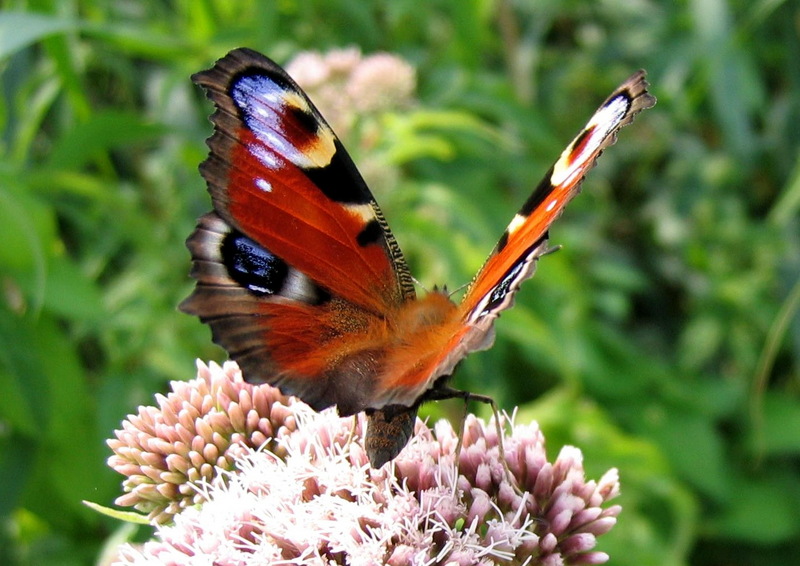|
| Query: white peacock | Result: 36th of 85 | |
Peacock Butterfly (Inachis io) - Wiki
| Subject: | Peacock Butterfly (Inachis io) - Wiki
| |

| Resolution: 1423x1007
File Size: 430658 Bytes
Date: 2007:10:05 09:23:43
Upload Date: 2007:10:05 09:27:40
|
Inachis io
From Wikipedia, the free encyclopedia
[Photo] Peacock Butterfly (Inachis io); Lepidoptera - Nymphalidae - Inachis io. Photo by Svdmolen (http://commons.wikimedia.org/wiki/User:Svdmolen). 28 July 2005, the Netherlands. Copyright (C) 2005 Sander van der Molen
Permission is granted to copy, distribute and/or modify this document under the terms of the GNU Free Documentation License, Version 1.2 or any later version published by the Free Software Foundation; with no Invariant Sections, no Front-Cover Texts, and no Back-Cover Texts. A copy of the license is included in the section entitled "GNU Free Documentation License". |
The European Peacock (Inachis io), more commonly known simply as the Peacock, is a well-known colourful butterfly, found in temperate Europe and Asia. It is the only member of the genus Inachis which is sometimes included in Nymphalis. It should not be confused or classified with the "American peacocks" in the genus Anartia; these are not close relatives of the present species. The peacock butterfly is resident in much of its range, often wintering in buildings or trees. It therefore often appears quite early in spring.
Description
The butterfly measures about 5 cm (2 in) from wingtip to wingtip and is easily identified by its striking eye pattern on a ruddy background, although with wings closed the cryptically coloured dark underwings make it look like a dead leaf. The eyespots are reminiscent of those on the feathers of a peacock, hence the name. The eyespots are exposed when the butterfly is disturbed by a potential predator (such as a bird) in a startling anti-predator display. The butterflies flick their wings open and make a hissing noise. The open wings create an impression of the face of a mammal such as a cat, and this deters the predator for long enough for the butterfly to escape.(Stevens 2005)
Reproduction and food
The butterfly hibernates over winter before laying its eggs in early spring, in batches of up to 500 at a time. The caterpillars, which are shiny black with six rows of barbed spikes and a series of white dots on each segment, hatch after about a week and feed on nettles and hops.
The adult butterflies drink nectar from a wide variety of flowering plants, including buddleia, sallows, dandelions, wild marjoram, danewort, hemp agrimony, and clover; they also utilize tree sap and rotten fruit.
Habitat
The Peacock can be found in woods, fields, meadows, pastures, parks, and gardens, and from lowlands up to 8,200 feet elevation. It is a relatively common butterfly seen in many European parks and gardens.
http://en.wikipedia.org/wiki/Inachis_io
| The text in this page is based on the copyrighted Wikipedia article shown in above URL. It is used under the GNU Free Documentation License. You may redistribute it, verbatim or modified, providing that you comply with the terms of the GFDL. |
|
Comments |
|---|
| | Guest |
|
Scientific Name: Aglais io (Linnaeus, 1758)
Common Names: Peacock Butterfly, European Peacock
Synonyms: Inachis io; Nymphalis io; Papilio io |
^o^
Animal Pictures Archive for smart phones
^o^
|
|
|

